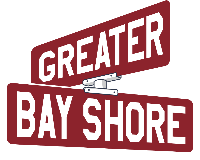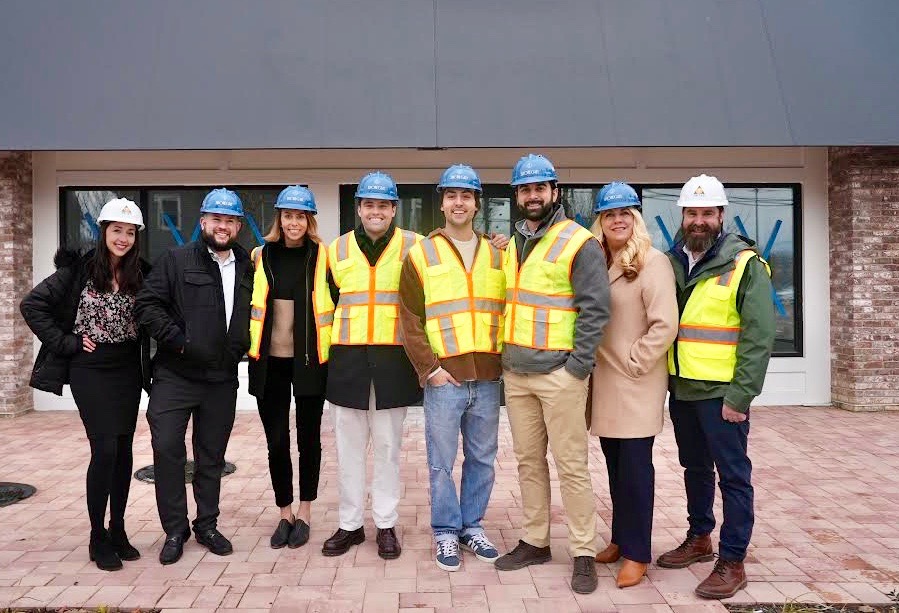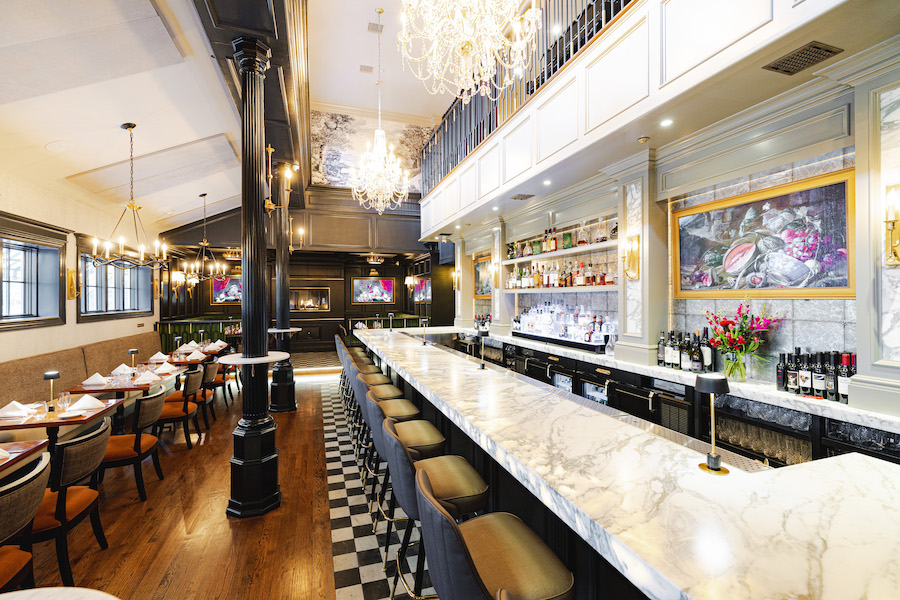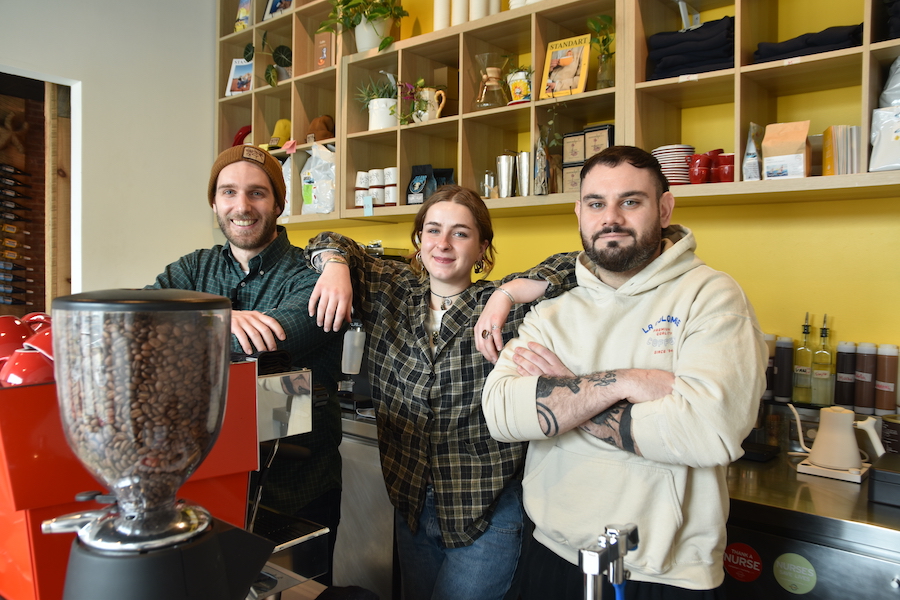
Greater Bay Shore coverage is funded in part by Shoregate, now leasing brand-new premium apartment homes in the heart of Bay Shore. Click here to schedule a tour.
Fifty years ago, Bay Shore’s Frank Romeo was finishing up his senior year at Bay Shore High School. Frank was what people used to call a jock, interested in sports and not much else.
Instead of going onto college, he enlisted in the U.S. Army with his best high school buddy. By the time he was 19 years of age, Frank was fighting in Vietnam. He barely made it home.
Below is a Q & A with Romeo from Susan Barbash (Bay Shore, Class of 1972).
SB: What year did you enlist in the Army?
FR: I graduated from Bay Shore in 1967 and was serving in the military from 1968 to 1970.
SB: Did other classmates enlist?
FR: I enlisted in the buddy system with Peter Frazzetto, a classmate. The buddy system guaranteed we would be together for basic training only. We served the entire 2 years together including Vietnam, and he was on the mission with me the day I was shot. In fact, he helped carry my body out of the jungle to a medivac. Yes, other classmates also joined. I joined out of loyalty to them. I was not political in any way. Besides, the draft was coming and many of us were going anyway.
SB: Did you know anything about the controversy surrounding the Vietnam War when you were a high school student? Did anyone counsel you not to enlist and go to college instead?
FR: In my wildest crazy youth I had no idea. I didn’t even know what or where Vietnam was. My life was consumed with girls, drinking, and sports. No one offered any advice as far as college and avoiding the draft. I was an athlete and my coaches never offered assistance in any way. At that time recruiters came into the high school and talked to us about the military and joining.
In my wildest dreams I could have never imagined my life would take this path. Life fascinates me because of this and I’m so eager to experience and learn as much as I can.
SB: Was it your impression that there was a lot of support for the war within the Bay Shore community at the time?
FR: The Bay Shore community was split like most of America. Students were protesting the war at every opportunity including a student walk out. I talk to some of my classmates now about their anti-war activities and for the most part it was the thing to do. Many were into experimenting with drugs and anti-war behavior. Going into the military was not popular, yet we all knew the draft was coming so it was inevitable. Some of our friends went to Canada.
SB: Where did you complete basic training?
FR: I did both my basic training and specialty advanced training at Fort Jackson, South Carolina.
SB: How old were you when you were deployed?
FR: I graduated at 18 and deployed the following year at 19.
SB: You have told me about your mission in Laos and waking up in a hospital in Japan. Please remind me when that happened.
FR: I was in Cambodia not Laos on covert missions when I was shot. I was on search and destroy missions on the Ho Chi Minh Trail coming out of Laos and into Cambodia. I was separated from my team and surrounded by a Vietcong Guerrilla unit and shot seven times. I was used for bait, hoping that the rest of the team would come for me. Left for dead, my unit found me and carried me out. They thought I was dead. I woke up in Japan a month later not remembering a thing since my fight. I was 19.
SB: When did you start experiencing symptoms that came to be termed PTSD?
FR: My post trauma symptoms started immediately but were treated as a psychosis. I was diagnosed “Depressive Neurosis” or “Vietnam War Syndrome” for over 30 years. I was heavily medicated and at one point admitted to psych ward at the Northport VA.
SB: What did the VA do to treat your symptoms?
FR: I was heavily medicated by the VA for many years. The government was in no condition to take care of us and the public turned its back on us. I was drugged for the next ten years after my discharge. By the way, I was busted for drugs in the military and sent to prison. I was discharged from the military from prison. It was dishonorable but I later had it reversed to honorable.
SB: When did you discover art as a therapeutic outlet?
FR: From the early eighties to the early nineties Congress commissioned a study on “Vietnam War Syndrome” and the American Psychiatric Association set up parameters for diagnosis and treatment and rebranded it PTSD. It made sense to me then with this new explanation. I began to have an epiphany, if you will, and re-lived all my experiences. Without prior training, I had an urge to create and tell my story though art. I hid my work because I was conditioned to keep my feelings inside. Eventually it was discovered and dubbed “Closet Art” by the media. Suddenly it took on a life if its own.
SB: When did you start showing your art in public? What was the reaction?
FR: My first art exhibit was at the West Islip public library sponsored by BACCA, a local Babylon Art Group. Much to my surprise it was a hit and the news media was contacted and my life as an artist began. This was in the early nineties. I’ve been going at it full speed and haven’t stopped since.
SB: What do you want to tell students who are considering enlisting in the service?
FR: When I address students going into the military I always ask WHY. What are your motives, do you believe in what you’re doing, and are you prepared? If anything, my exhibit is a wakeup call for them. I prepare them for reality and bridge the gap between generations. The names have changed but the reality and trauma remain the same. I’m compelled to get out my message of hope, turning a negative into a positive, and moving forward because no one did it for me.
SB: Do you think young people have an unrealistic idea of what war is all about?
FR: Yes I believe young people are unprepared for the reality of war. Video games, movies, and even our own government glorifies the act of war. I detest this vehemently and speak about it often.
SB: Would it be correct to say that although we as a people can disagree whether waging a particular war is just or justified, we can or should always agree that war takes a terrible toll on those that serve?
FR: War takes a terrible toll not only on those that serve but society as a whole. We are still dealing with the Vietnam War in our social issues for our veterans. The homeless issue, healthcare, pensions, and veteran benefits are paid for by society. On an individual level we as soldiers stand apart. War has touched us and we will never be the same. The reality of war and its effects on us remain foremost in my life. My works speak of this reality and the struggle to move forward as we carry the past with us. My work is about hope and turning a negative into a positive.
SB: How do your experiences relate to today’s world? Do you think of yourself as a living history lesson or is it more than that? Do you think your story is relevant to today’s world?
FR: The parallels between my generation and today’s generation are uncanny. I am a war child; I grew up during wartime just like today’s generation. Our generations are both experiencing two of the longest wars in our nation’s history and the effects on the individual and society are similar.
My generation of veterans had the highest suicide rate for any group in history until today. Today’s veterans have surpassed us and the rate is alarming. We are still reeling and paying for the Vietnam War after 50 years and today’s students will carry the same burden.
I had no say in my war and to an extent neither do today’s young people. These students cannot vote yet but they will be expected to participate and pay for our country’s war. The lessons of life I share is the future for these students and this fuels my work. No one took the time to inform, prepare, or help me in any way, so I take it upon myself to do so. There is not another program like mine anywhere and for 25 years I’ve been pushing my message alone. In a spirit of hope, education, and healing I continually move forward.
Source: Bay Shore Schools Arts Education Fund
























